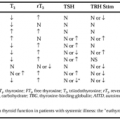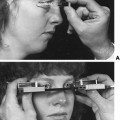THERAPY
Part of “CHAPTER 99 – PREMENSTRUAL SYNDROME“
Education and counseling about the nature of premenstrual mood and behavioral changes is sufficient to allow many patients to cope with PMS. Most patients are embarrassed and frustrated by the skepticism with which their concerns are met by many within the medical profession. When their concerns are not taken seriously and they are simply advised to put “mind over matter,” the recurrent monthly intrusion into their lives becomes a source of both fear and guilt. It is common for afflicted women to have fears that they are “going crazy” and to experience a loss of self-worth in their careers and their family roles. Validation of the woman’s experience and letting her know that she is not alone is perhaps the most important first step in overcoming PMS. Women with PMS need to hear that although medicine has yet to unravel the complex interplay between reproductive hormones and mood, there are now effective interventions that will provide relief for this disorder.
Charting by itself may demonstrate to the patient the cyclicity of her symptoms, which is consistent with a hormonal cause (or, on the other hand, may indicate that she does not have PMS). Reassurance that other women experience similar problems is afforded by the fact that many of her symptoms are already listed on the PRISM calendar.
When an individual is suffering to a degree that requires more than simple counseling and assurance, measures aimed at lifestyle modification should be explored first. The woman and her family must develop strategies for coping and stress reduction. It is vital that she learn to anticipate times when she may be more vulnerable to emotional upset or confrontation with others by looking back at the previous month’s calendar. Extra precautions at this time may reduce confrontations. For example, if a woman finds that drinking alcohol precedes temper flares or that drinking coffee induces anxiety, she should avoid these premenstrually. Ongoing charting is vital to this process of self-education.
A regular program of exercise should be encouraged as a useful outlet for tension and anxiety. All too often, the woman’s best intentions are insufficient to keep her on track with an exercise program when the fatigue or depression of PMS sets in. Encouraging her to exercise with a friend who can provide continuing motivation at these times is helpful.
Group counseling in a program supervised by a clinical psychologist can be invaluable; however, participation in a “support group” of heterogeneous, self-diagnosed PMS sufferers is useless to women seeking reliable information and direction. The lay literature contains much misinformation.
Reduction of intake of salt and refined carbohydrates may help prevent edema and swelling in some women. There is anecdotal evidence that small, more frequent meals may alleviate some symptoms, perhaps by facilitating cellular glucose uptake.
Attention should be directed to the treatment of other menstrual cycle symptoms for which established treatments exist. For example, prostaglandin synthetase inhibitors afford effective relief from dysmenorrhea for most women. These agents may also attenuate other premenstrual symptoms when used on a regular basis in the 7 to 10 days before menstruation.26 Caution must be exercised with the prescription of any drug in the luteal phase of the cycle if the possibility of pregnancy exists.
If the woman has contraceptive needs or experiences dysmenorrhea or menorrhagia, an oral contraceptive may be a good first choice, because it reduces the overall sum of premenstrual and menstrual symptoms. Nevertheless, it is important to remember that exposure to progestin begins 3 weeks before menstruation in oral contraceptive users, and some individuals will actually experience PMS symptoms occurring shortly after beginning their pill cycle until the onset of menstruation.27 Women on the oral contraceptive who have distressing PMS should be counseled to consider an alternate means of contraception—at least on a trial basis—until the effect of the oral contraceptive
can be determined. Alternatively, an SSRI could be used in combination with the oral contraceptive.
can be determined. Alternatively, an SSRI could be used in combination with the oral contraceptive.
Stay updated, free articles. Join our Telegram channel

Full access? Get Clinical Tree





